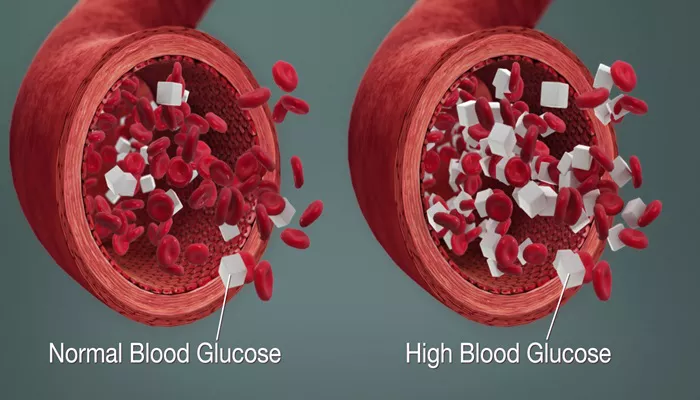Hypertension, commonly known as high blood pressure, is a prevalent medical condition that affects millions of individuals worldwide. While it is widely known for its role in increasing the risk of heart disease and stroke, hypertension also has significant impacts on the kidneys. One such impact is proteinuria, a condition characterized by the presence of excess protein in the urine. Understanding the mechanisms by which hypertension causes proteinuria is crucial for the effective management and treatment of both conditions.
Hypertension And Its Effects on the Body
Hypertension is defined as a consistent increase in blood pressure levels above the normal range, typically considered to be 120/80 mmHg. When blood pressure is elevated, the heart must work harder to pump blood through the arteries, which can lead to various complications. The kidneys, being highly vascular organs, are particularly vulnerable to the effects of hypertension. The kidneys filter blood to remove waste products and excess substances, including proteins, through a complex network of blood vessels known as glomeruli.
SEE ALSO: How Does Hypertension Cause Neck Pain?
Mechanisms of Proteinuria Development in Hypertension
Proteinuria occurs when the kidneys’ filtering system is damaged, allowing proteins, such as albumin, to pass into the urine.
Several mechanisms contribute to the development of proteinuria in individuals with hypertension:
Glomerular Hyperfiltration:
In the early stages of hypertension, the kidneys may respond by increasing the filtration rate of the glomeruli. This hyperfiltration is an adaptive mechanism to cope with the increased blood flow and pressure. However, prolonged hyperfiltration can lead to structural damage to the glomerular filtration barrier, allowing proteins to leak into the urine.
Endothelial Dysfunction:
The endothelium, a thin layer of cells lining the blood vessels, plays a crucial role in maintaining vascular health.
Hypertension can cause endothelial dysfunction, leading to increased permeability of the glomerular capillaries. This increased permeability facilitates the passage of proteins into the urine.
Podocyte Injury:
Podocytes are specialized cells in the glomeruli that help maintain the integrity of the filtration barrier. Hypertension can lead to podocyte injury and loss, compromising the barrier function and resulting in proteinuria.
Mesangial Expansion:
The mesangium is a supportive structure within the glomeruli that provides structural support and regulates blood flow.
Hypertension can cause mesangial expansion and sclerosis, disrupting the filtration barrier and contributing to protein leakage.
Inflammation and Oxidative Stress:
Hypertension is associated with chronic inflammation and oxidative stress, both of which can damage the glomerular filtration barrier. Inflammatory cytokines and reactive oxygen species can disrupt the structural integrity of the glomeruli, leading to proteinuria.
Clinical Implications of Proteinuria in Hypertension
Proteinuria is not just a marker of kidney damage; it also has significant clinical implications. Persistent proteinuria is a sign of chronic kidney disease (CKD) and is associated with an increased risk of cardiovascular events. The presence of proteinuria in hypertensive patients often indicates a higher risk of disease progression and complications. Therefore, monitoring and managing proteinuria in individuals with hypertension is essential for improving outcomes and preventing further kidney damage.
Diagnosis And Monitoring of Proteinuria
The diagnosis of proteinuria typically involves several tests to detect the presence and quantify the amount of protein in the urine:
Dipstick Test:
A simple and quick screening tool that detects the presence of protein in the urine. It provides a qualitative measure and is often used as an initial screening test.
Urine Protein-to-Creatinine Ratio (UPCR):
This test measures the ratio of protein to creatinine in a single urine sample, providing a more accurate assessment of proteinuria.
24-Hour Urine Collection:
This test involves collecting all urine produced in a 24-hour period to measure the total amount of protein excreted. It provides a quantitative measure of proteinuria and is considered the gold standard for diagnosis.
Blood Tests:
Blood tests to measure kidney function, such as serum creatinine and estimated glomerular filtration rate (eGFR), are often performed to assess the overall impact of proteinuria on kidney health.
Management of Hypertension and Proteinuria
The management of proteinuria in individuals with hypertension involves a multifaceted approach aimed at controlling blood pressure, reducing proteinuria, and preventing further kidney damage:
Blood Pressure Control:
Achieving and maintaining optimal blood pressure levels is crucial for preventing and managing proteinuria. The target blood pressure for individuals with proteinuria is often lower than for those without kidney involvement, typically around 130/80 mmHg.
Renin-Angiotensin-Aldosterone System (RAAS) Inhibition:
Medications that inhibit the RAAS, such as angiotensin-converting enzyme inhibitors (ACE inhibitors) and angiotensin II receptor blockers (ARBs), are effective in reducing proteinuria and protecting kidney function. These medications work by dilating blood vessels, reducing glomerular pressure, and decreasing protein leakage.
Dietary Modifications:
A low-sodium diet can help reduce blood pressure and proteinuria.
Additionally, a diet low in protein may be recommended for individuals with advanced kidney disease to reduce the burden on the kidneys.
Lifestyle Changes:
Lifestyle modifications, such as regular physical activity, weight management, and smoking cessation, play a vital role in managing hypertension and reducing proteinuria.
Monitoring and Follow-Up:
Regular monitoring of blood pressure, kidney function, and proteinuria levels is essential for assessing the effectiveness of treatment and making necessary adjustments.
Conclusion
Hypertension is a major risk factor for the development of proteinuria, a condition that signifies kidney damage and increases the risk of cardiovascular complications. The mechanisms by which hypertension causes proteinuria include glomerular hyperfiltration, endothelial dysfunction, podocyte injury, mesangial expansion, and chronic inflammation. Early detection and effective management of hypertension and proteinuria are crucial for preventing the progression of kidney disease and improving overall health outcomes.

